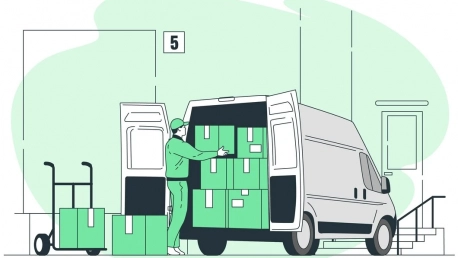The logistics industry is undergoing a significant transformation, fueled by cutting-edge technological innovations. This digital revolution is characterized by the integration of sophisticated robotics, AI, and IoT. These advancements have not only boosted efficiency but also heightened sustainability within the sector.These technologies are not just changing the operational methods of logistics firms; they’re also revolutionizing the strategic decision-making processes at the core of the industry. As a consequence, logistics companies are re-evaluating how they do business, streamlining their operations, and finding new ways to meet the demands of a rapidly changing global market.Overall, this technological shift is pivotal for the future of logistics, setting a new benchmark for the industry to follow. Companies that embrace this change are poised to lead, delivering faster, smarter, and more eco-friendly logistics solutions.
Embracing Technological Innovations
The Rise of AI and IoT in Logistics
Emerging technologies such as AI and IoT are playing pivotal roles in revolutionizing the logistics sector. Companies like Correos Express are leaning into these developments, leveraging them to make more informed decisions—especially amid market unpredictability, like that shown during global health crises. Artificial intelligence, with its ability to predict trends and automate complex tasks, and IoT, which provides real-time tracking and monitoring, have proven more scalable and reliable than expanding the workforce.With this shift toward technology, logistics is also seeing a greater focus on sustainability. The industry is leaning heavily on data to chart more eco-friendly courses, balancing growth with environmental responsibilities. This strategic approach has become more than a trend—it’s a necessity in adapting to fluctuating customer expectations and the pressing need for greener operations.
Robotics and Quantum Computing: The Future Frontier
In the constantly evolving logistics sector, cutting-edge technologies such as autonomous robots and quantum computing are setting new benchmarks. These innovations are not merely about trimming costs but are fundamentally transforming the industry. Firms are eagerly exploring these technologies, recognizing their potential to offer much more than economic benefits. As Swisslog underscores, the implications extend to improving the overall quality of logistics services. By integrating these high-tech solutions, companies can greatly influence a nation’s capacity for innovation and boost its position in the global market. This leap forward in logistics technology promises not just efficiency but also a stronger competitive edge, underscoring the strategic value of embracing technological advancements.
Industry Trends and Market Projections
Cloud-Based Systems and Big Data Analytics
The logistics sector is amid a transformative digital evolution, with cloud computing and advanced data analytics at the forefront reshaping supply chains. These technologies grant businesses an unparalleled level of flexibility and intelligence, allowing for better inventory control, efficient workflow optimization, and an agile response to consumer demands.By the late 2020s, it’s projected that the industry will balloon into a multi-billion-dollar market, a testament to the confidence placed in AI and IoT to revolutionize the logistics world. The industry’s embrace of digitalization points to a strong trust in the power of these tech tools to fundamentally change how logistics operates. This digital trend doesn’t just signal a shift toward technology dependency; it emphasizes a deep-seated belief in their transformative impact. The logistics domain is poised to continue its trajectory towards a more connected, data-driven future.
Workforce Impacts and Cybersecurity Concerns
The shift toward AI and IoT in logistics promises better efficiency and safety. However, it also sparks concerns such as potential job losses and cybersecurity threats. As machines increasingly perform tasks humans once did, the need for workforce upskilling and stringent data protection becomes apparent. While the initial investment may be high and societal implications significant, the improvements in operational costs and productivity are undeniable. This tech transition means job roles will evolve and require more advanced skills, but this reliance on tech can introduce vulnerabilities. Dealing with these challenges is pivotal for maintaining a balanced approach to the sector’s digital advance. The industry acknowledges the importance of navigating through these issues to ensure a comprehensive and proactive embrace of the digital evolution within logistics.









